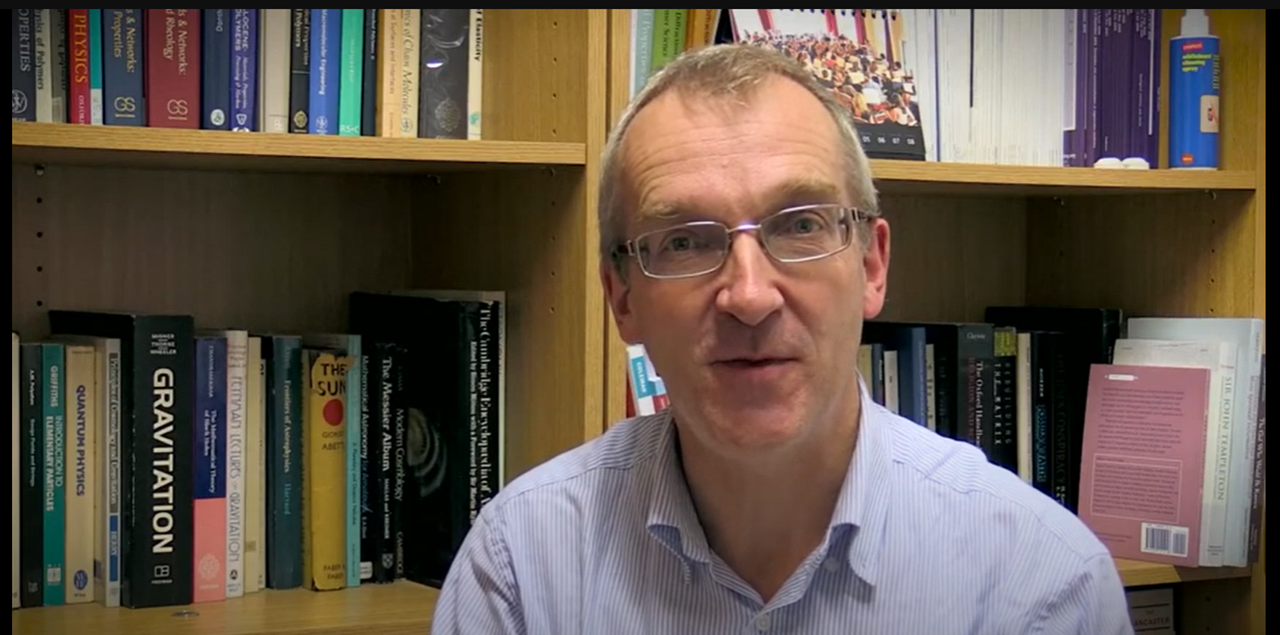In 2016, Prof. Tom McLeish and Rev. Dr David Wilkinson had a vision of reimagining how scientists might, as the apostle Paul extols in Romans 12:9, live out their faith authentically in their every-day life and work. Since the 1980s, philosophers and historians of science had been attempting to persuade wider publics that the standard story of an inevitable and enduring conflict between religion and science just doesn’t hold up. Tom and David argued for going beyond talk of “science and religion”, to recognise the organic reality of what Tom described as “faith and wisdom in science”, the “theology of science”, or even “the poetry and music of science”.
Interesting questions exploring a revision of the relations between science and faith might include: How does science work? Is it really objective given it is practised by humans? Is there a place within science for values, specifically those held by Christians? Indeed, do scientific practitioners in fact need to ground their theories in a belief system? What does being a Christian bring to how we practice science?
These were some of the philosophical questions which Dr Sareen Galbraith, a virologist, and Dr Richard Gunton, an ecologist, brought to a student church in central Leeds.
Would science students in the congregation benefit from learning about the history and philosophy of science, especially the ideas of Christian philosophers of science, including Herman Dooyeweerd? There were some exciting possibilities: Would bringing our faith into our practice of science lead to more successful science?
Developing the project
The pastor at Blenheim Baptist Church, Rev David Humphries, was interested in a theology of science, and we discovered that the congregation included not only engineering, chemistry, food science, and physics students, but also a PhD student researching the history of electricity, and another, a former botanist, on the history and philosophy of biology (me!). We realised that through Blenheim and Thinking Faith Network, a Leeds-based charity supporting Christian postgraduate researchers, we had a core team of theologians, science lecturers, and history & philosophy of science tutors, and agreed an overarching aim of developing workshops and café evenings to help masters and doctoral students find enrichment for their scientific work from Christian perspectives. We had in mind a call for ecumenical “scientists in congregations” projects that would be co-led by a scientist and a church leader. We devised a name – and Church Scientific was launched with grants totalling around £10,000 from a new programme called Equipping Christian Leadership in an Age of Science: the brainchild of McLeish and Wilkinson.
The passing of Tom McLeish will be a cause of great sadness for everyone involved in these projects. But it also gives us a renewed sense of purpose to continue working in the spirit of Tom’s ground-breaking and inspiring work on the dynamics of scientific practice.
Exploring faith in the practice of science
In its first year, the project ran five workshops for postgraduate students and other early-career scientists in Leeds, followed by a series of café evenings open to the public. Lots of coffee and snacks were consumed in very pleasant company, with scintillating conversation! In the workshops, invited speakers shared insights into the place of scientific work in a biblical worldview, and how Christian and other worldviews have contributed to the growth of the sciences. In the café evenings, the workshop participants took turns to speak about their scientific work and ways in which they saw this relating to their faith. It was fascinating to hear about all kinds of research and development topics – from friction to food science, and from cosmology to labs-on-microchips.
The first year culminated in a conference. Besides keynote talks, break-out discussions and, of course, coffee, a highlight was the set of poster presentations where early-career participants shared their testimonies showing how their personal growth in faith intersected with their scientific career development.
Building up the vision
There was lots of enthusiasm to do more of what Church Scientific’s first year had achieved, and make it better. So, with further generous support from Tom McLeish and David Wilkinson’s project, we ran new and improved workshops and a café programme in 2018. Some participants returned, and new ones joined. Then in 2019, those closest to the running of the project decided to focus on further developing our understanding of the role of faith in the sciences. During the pandemic in 2020, we held an on-line reading group, discussing Science and Grace by Tim Morris and Don Petcher. But our main conclusion was that no existing publications adequately cover what early-career scientists need to enrich their academic thinking about their scientific practice in the light of God’s revealed wisdom.
Where next?
This brings us to the present. Pandemic lockdowns have been and gone, and the distinctive vision of Church Scientific is needed more than ever. The team has grown and its members are no longer all based around Leeds. We want to share a fuller, clearer vision for faithful Christian thinking in the service of scientific discovery and enrichment through online as well as in-person encounters. And so we’re looking to raise funds, and gather skills where needed, to create short explanatory videos and to run more in-person workshops wherever we can.
Please contact us if you can help!








